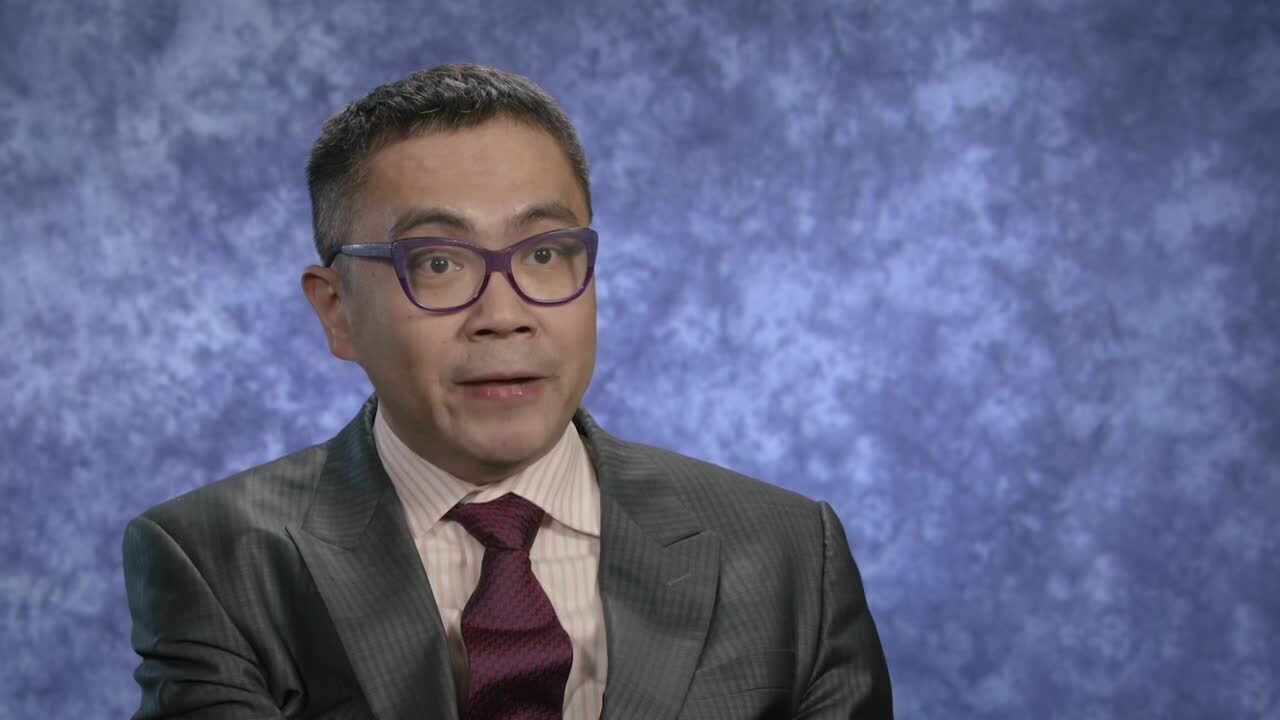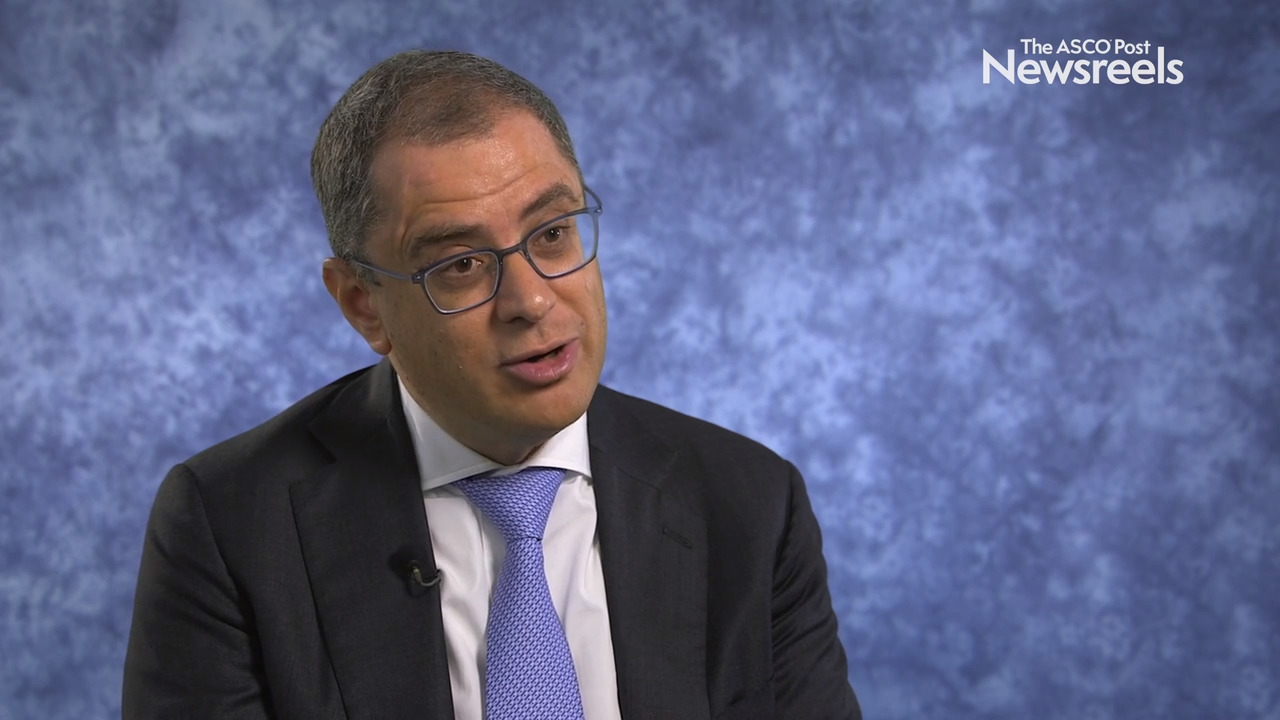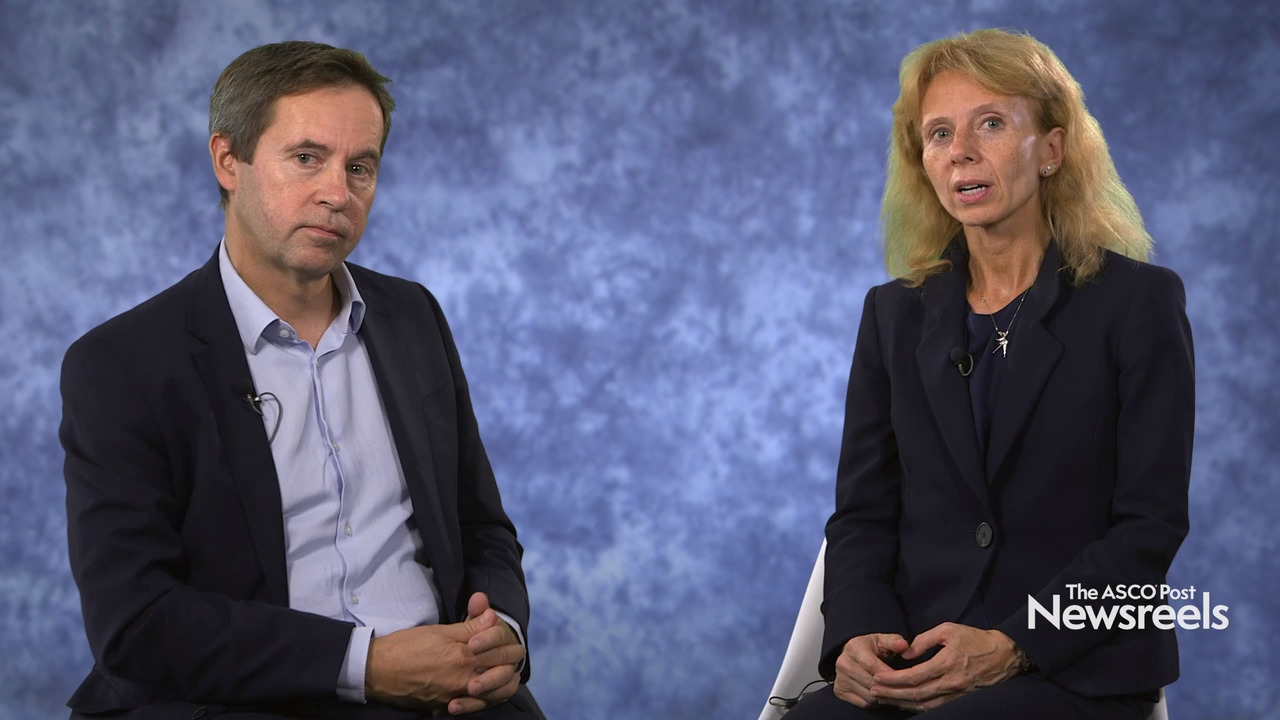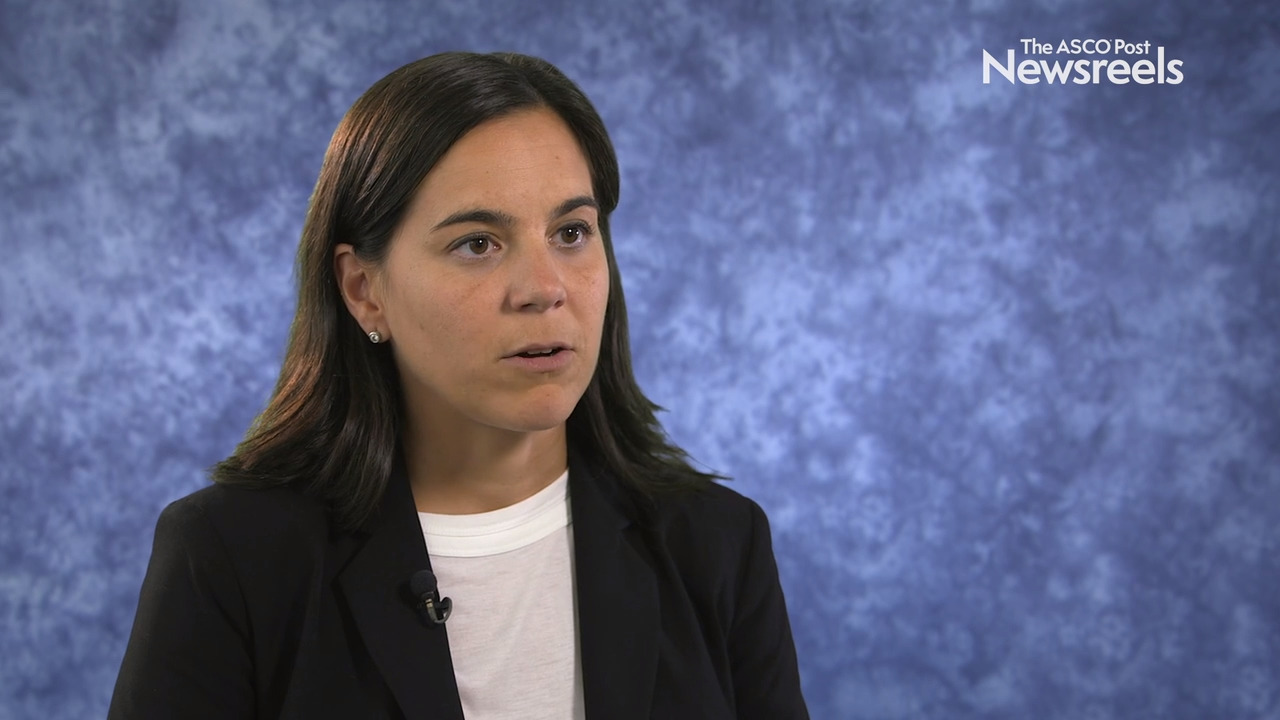IMbrave150 Prespecified Analysis Adds Improved Quality-of-Life to Survival Benefits Reaped With Atezolizumab Plus Bevacizumab
New findings from a prespecified analysis of the pivotal IMbrave150 trial revealed improved quality of life for patients with advanced hepatocellular carcinoma treated with atezolizumab plus bevacizumab in the first-line setting. These results were reported by Peter R. Galle, MD, at the 2020...
Conference Highlights From the 2020 Gastrointestinal Cancers Symposium
This past January, the 2020 Gastrointestinal Cancers Symposium was held in San Francisco. More than 3,600 individuals attended and more than 900 abstracts and posters were presented. Among the highlights presented at the meeting and reported in the pages of The ASCO Post, several studies in...
Does Aspirin Use Lower the Risk of Hepatocellular Carcinoma and Liver-Related Mortality in Patients With Chronic Viral Hepatitis?
In a study reported in The New England of Medicine, Tracey G. Simon, MD, MPH, and colleagues found that low-dose aspirin use was associated with a reduced risk of hepatocellular carcinoma and liver-related mortality among patients with chronic hepatitis B or C infection. Study Details The study...
Selected Abstracts on Novel Treatments in Colon, Hepatocellular, and Biliary Tract Cancers
The ASCO Post has reported on the pivotal trials presented at the 2020 Gastrointestinal Cancers Symposium in several issues. Featured here are the findings of several additional abstracts worthy of mention. Intermittent Oxaliplatin in Stage II or III Colon Cancer As adjuvant treatment for stage II...
FDA Approves Nivolumab/Ipilimumab for Pretreated Patients With Hepatocellular Carcinoma
On March 10, the U.S. Food and Drug Administration (FDA) granted accelerated approval to the combination of nivolumab (Opdivo) and ipilimumab (Yervoy) for patients with hepatocellular carcinoma who have been previously treated with sorafenib. CheckMate 040 Efficacy of the combination was...
FDA Pipeline: Priority Review in DLBCL, Fast Track Designations in T-Cell Lymphoma and Adenoid Cystic Carcinoma
Over the past week, the U.S. Food and Drug Administration (FDA) granted Priority Review to a combination therapy in diffuse large B-cell lymphoma (DLBCL); gave Fast Track designations for treatments in T-cell lymphoma and adenoid cystic carcinoma; granted Orphan Drug designation to an agent for the ...
Expert Point of View: A. Craig Lockhart, MD
The invited discussant of the IMbrave150 trial, A. Craig Lockhart, MD, Professor of Medicine, University of Miami Sylvester Comprehensive Cancer Center, applauded the study for making patient-reported outcomes a prespecified endpoint and described the value of having this information. “The U.S....
Patient-Reported Outcomes From IMbrave150: Better Quality of Life With Doublet
For the first-line treatment of advanced hepatocellular carcinoma, atezolizumab plus bevacizumab provided a significant overall survival benefit in the pivotal IMbrave150 trial. New findings from a prespecified analysis also showed numerous benefits for the doublet in terms of quality of life,...
PRH/HHEX Transcription Factor as a Treatment Target in Patients With Cholangiocarcinoma
Treatment of patients with cholangiocarcinoma could be improved by tailoring medication to the levels of a key protein in people with the disease, according to new research published by Kitchen et al in Cancer Research. Researchers have discovered that the proline-rich homeodomain...
Thomas Yau, MBBS, on Advanced Hepatocellular Carcinoma: CheckMate 040 Trial of Nivolumab, Ipilimumab, and Cabozantinib
Thomas Yau, MBBS, of the University of Hong Kong, discusses this triplet combination, which yielded better responses than doublet combination therapy in patients with advanced liver cancer, but with more severe adverse events and more treatment discontinuations (Abstract 478).
Peter R. Galle, MD, on Atezolizumab/Bevacizumab vs Sorafenib for Hepatocellular Carcinoma: Patient-Reported Outcomes
Peter R. Galle, MD, of the University Medical Center, Mainz, discusses patient-reported outcomes from this phase III study, which showed the combination of atezolizumab plus bevacizumab vs sorafenib is well tolerated and may represent a new standard of care in the first-line setting for unresectable liver cancer (Abstract 476).
FDA Pipeline: Priority Reviews in Multiple Myeloma, Prostate Cancer
Over the past week, the U.S. Food and Drug Administration (FDA) granted Priority Review to treatments for multiple myeloma and prostate cancer; gave Fast Track designation to a targeted gene therapy for lung cancer; granted Orphan Drug designation to a combination therapy for hepatocellular...
2020 GI Cancers Symposium: Addition of Ramucirumab or Merestinib to Gemcitabine/Cisplatin for Biliary Tract Cancer
According to study results to be presented by Valle et al at the 2020 Gastrointestinal Cancers Symposium (Abstract 477), the addition of either ramucirumab or merestinib to the standard first-line therapy for biliary tract cancer—gemcitabine plus cisplatin—did not improve progression-free survival, ...
2020 GI Cancers Symposium: Patient-Reported Outcomes From IMbrave150, BEACON CRC
Patient-reported outcomes from two large studies show that quality of life is maintained longer with newer drug combinations compared with standard-of-care treatments in patients with unresectable hepatocellular carcinoma and BRAF V600E–mutant metastatic colorectal cancer. The results, from...
Treatment Resistance and Novel Therapies in FGFR-Mutated Cholangiocarcinoma
A new study has shown how resistance to fibroblast growth factor receptor (FGFR) inhibitor treatment develops in patients with cholangiocarcinoma and suggests that adding another therapy at the time of disease progression might resensitize tumor cells to initial therapy. These findings were...
FDA Pipeline: Fast Track/Orphan Drug Designation for Cholangiocarcinoma Treatment, Breakthrough Device Designation for Bladder Cancer Test
This week, the U.S. Food and Drug Administration (FDA) granted Fast Track designation to infigratinib for patients with advanced or metastatic cholangiocarcinoma with a certain genetic mutation, and Orphan Drug designation to the treatment for patients with cholangiocarcinoma. The FDA also granted...
Does Second-Line Pembrolizumab in Patients With Advanced Hepatocellular Carcinoma Previously Treated With Sorafenib Confer a Survival Benefit?
As reported in the Journal of Clinical Oncology by Richard S. Finn, MD, and colleagues, the phase III KEYNOTE-240 trial has shown no statistically significant progression-free or overall survival benefit with pembrolizumab vs placebo in patients with advanced hepatocellular carcinoma who were...
ClarIDHy and FIGHT-202 Trials Show Positive Results in the Treatment of Patients With Biliary Tract Cancer
Two studies reported at the European Society for Medical Oncology (ESMO) Congress 2019—ClarIDHy and FIGHT-202—demonstrated clinical benefits with novel molecularly targeted agents in the treatment of advanced cholangiocarcinoma. Currently, first-line treatment for locally advanced or metastatic...
FDA Pipeline: Recent Designations in Hepatocellular Carcinoma, Cholangiocarcioma, Lymphoma, and More
Over the past few weeks, the U.S. Food and Drug Administration (FDA) granted reviews or designations to treatments for gastrointestinal cancers and lymphoma, and also provided authorizations for products designed to screen for malignancies and tumor mutational burden. Priority Review for Nivolumab...
ESMO Asia 2019: Combination of Atezolizumab and Bevacizumab for Unresectable Hepatocellular Carcinoma
Combination therapy with the programmed cell death ligand 1 inhibitor atezolizumab and the VEGF inhibitor bevacizumab significantly improved overall and progression-free survival in patients with unresectable hepatocellular carcinoma (HCC) compared to sorafenib, according to findings from the phase ...
‘Clinically Meaningful’ Outcomes Seen in Two Studies of First-Line Immunotherapy for Hepatocellular Carcinoma
In the first-line treatment of advanced hepatocellular carcinoma, checkpoint inhibitors led to favorable outcomes in studies reported at the European Society for Medical Oncology (ESMO) Congress 2019—though one study was technically negative. The current first-line standard of care for unresectable ...
Targeted Treatment Advances in Cholangiocarcinoma
For one of the rarest and most aggressive of tumors—cholangiocarcinoma—two novel molecularly targeted agents yielded encouraging outcomes in advanced disease in studies reported at the European Society for Medical Oncology (ESMO) Congress 2019. In the phase III ClarIDHy trial, the risk of disease...
Oral Direct-Acting Antiviral Therapy May Improve Survival in Patients With Hepatitis C Virus–Related HCC
Data from a new study presented by Dang et al at The Liver Meeting (Abstract 40) found that patients with hepatitis C virus–related hepatocellular carcinoma (HCC) who achieved sustained virologic response (denoting an undetectable level of the virus) with any oral direct-acting antiviral therapy...
Hepatic Arterial Infusion of Floxuridine Plus Systemic Gemcitabine/Oxaliplatin for Unresectable Intrahepatic Cholangiocarcinoma
In a single-center phase II trial reported in JAMA Oncology, Andrea Cercek, MD, and colleagues found that hepatic arterial infusion of floxuridine in combination with systemic gemcitabine/oxaliplatin produced high response and disease control rates and was associated with promising overall survival ...
Financial Burdens of Patients With Cirrhosis and Impact on Screening for HCC
Data from a new study presented by Singal et al at The Liver Meeting found that patients with cirrhosis in the United States have substantial financial burden and this is associated with underuse of surveillance for hepatocellular carcinoma (HCC) (Abstract 201). Improved intervention strategies are ...
2019 NCRI: Hepatocellular Carcinoma Incidence and Mortality Rates in England Have Tripled Over the Past 20 Years
From 1997 to 2016, incidence and deaths from hepatocellular carcinoma have tripled in England, according to research presented by Burton et al at the 2019 National Cancer Research Institute (NCRI) Cancer Conference. Anya Burton, PhD, a cancer epidemiologist at Public Health England, said in a press ...
Studies Report Efficacy of Proton Radiotherapy for Hepatocellular Carcinoma
Two new studies published in the International Journal of Radiation Oncology • Biology • Physics focused on the use of proton radiation therapy to treat patients with hepatocellular carcinoma. The first study, by Sanford et al, found that proton radiation may extend overall survival compared to...
Postdiagnosis Use of Aspirin in Patients With Biliary Tract Cancer
In a study reported in a research letter in JAMA Oncology, Jackson et al found that postdiagnosis aspirin use was associated with significantly improved overall survival across biliary tract cancer types. Study Details The study involved 2,934 adult patients diagnosed with biliary tract cancer...
Contrast-Enhanced Ultrasound May Help to Predict Cirrhotic Nodule Transformation to Hepatocellular Carcinoma
An article published by Lin et al in the American Journal of Roentgenology has identified sonographic biomarkers that may predict eventual malignant transformation of pathologically confirmed cirrhotic nodules for patients at risk for hepatocellular carcinoma. Lead investigator Manxia Lin, MD, of...
Addition of Doxorubicin to Sorafenib in Advanced Hepatocellular Carcinoma
As reported in JAMA Oncology by Ghassan K. Abou-Alfa, MD, and colleagues, the phase III Alliance/CALGB 80802 trial has shown no progression-free or overall survival benefit with the addition of doxorubicin to sorafenib in patients with advanced hepatocellular carcinoma. The study was stopped early...
Ghassan K. Abou-Alfa, MD, MBA, on Cholangiocarcinoma: ClarIDHy Trial of Ivosidenib vs Placebo
Ghassan K. Abou-Alfa, MD, MBA, of Memorial Sloan Kettering Cancer Center, discusses phase III study findings showing improvement in progression-free survival among patients with an isocitrate dehydrogenase 1 (IDH1) mutation who received ivosidenib compared with a similar group that received placebo (Abstract LBA10).
ESMO 2019: Ivosidenib in IDH1-Mutated Advanced Cholangiocarcinoma
Patients with advanced cholangiocarcinoma with an isocitrate dehydrogenase 1 (IDH1) mutation showed clinical benefit and improved progression-free survival (PFS) when treated with ivosidenib vs placebo, according to results presented by Ghassan K. Abou-Alfa, MD, at the European Society for Medical...
Tim Meyer, PhD, and Lorenza Rimassa, MD, on Advanced Hepatocellular Carcinoma: CELESTIAL Trial of Cabozantinib
Tim Meyer, PhD, of the University College London, and Lorenza Rimassa, MD, of Humanitas Research Hospital, Milan, discuss their phase III findings on prognostic and predictive factors of cabozantinib vs placebo in previously treated liver cancer, and outcomes based on clinical characteristics and plasma biomarkers in the advanced setting (Abstracts 749P & 678PD).
Angela Lamarca, MD, PhD, on Liver Metastases From Intrahepatic Cholangiocarcinoma
Angela Lamarca, MD, PhD, of the Christie NHS Foundation Trust, discusses findings from a study that showed new staging criteria should be considered for patients diagnosed with liver metastases in the absence of other extrahepatic tumor spread (Abstract 731P).
ESMO 2019: First-Line Immunotherapy Shows Clinical Benefit in Advanced Hepatocellular Carcinoma
New data have shown a trend toward clinically meaningful improvements in survival and response rates and a favorable safety profile with first-line immunotherapy compared to current standard treatment for advanced hepatocellular carcinoma (HCC). The data, reported by Yau et al at the European...
Sorafenib Plus Transarterial Chemoembolization for Advanced Hepatocellular Carcinoma
During the past decade, scientists began to test whether the addition of transarterial chemoembolization (TACE) to treatment with sorafenib could increase survival in patients with advanced hepatocellular carcinoma. Scientists from Taiwan and Japan performed the first large, national-level,...
Real-Time ctDNA Evaluation in Patients With Hepatocellular Carcinoma
In a study published in the Journal of Gastrointestinal Oncology, Mody et al described results from patients with hepatocellular carcinoma undergoing circulating tumor DNA (ctDNA) testing in a real-time clinical context. The authors wrote, “[ctDNA assessment] holds incredible promise for early...
FDA Pipeline: Fast Track Designation in Myelodysplastic Syndrome and AML, Plus Multiple Breakthrough Designations
Recently, the U.S. Food and Drug Administration (FDA) granted Fast Track designation to magrolimab in myelodysplastic syndrome and acute myeloid leukemia (AML). The agency also granted Breakthrough Therapy designations in lung cancer and desmoid tumors, as well as Breakthrough Device designations...
Results From the TAPUR Study on Palbociclib for Pancreatic Cancer and Cholangiocarcinoma
New results from ASCO’s Targeted Agent and Profiling Utilization Registry (TAPUR) study have demonstrated that single-agent palbociclib has no meaningful clinical activity in patients with CDKN2A-mutated or -deleted advanced pancreatic adenocarcinoma and cholangiocarcinoma. These findings were...
Direct-Acting Antiviral Therapy and Reduced Mortality in Patients With Hepatitis C and a History of Liver Cancer
A study published by Singal et al in Gastroenterology demonstrated that treatment with antiviral therapy for hepatitis C reduced liver-related deaths by nearly 50% in patients with a history of liver cancer. Previous Research The finding builds on a December 2018 study by Singal et al also...
CD8-Positive, Ki67-Positive T Cells Producing Interferon Gamma as a Biomarker of Response to Sorafenib Therapy in Patients With Advanced HCC
Immunology researchers have uncovered a biomarker that may help explain why some patients respond better than others to sorafenib, a common chemotherapy used in the treatment of hepatocellular carcinoma (HCC). Their analysis of immune responses among patients receiving sorafenib, published by...
Outcomes in Nonalcoholic Fatty Liver Disease–Associated HCC
A recent study has found that nonalcoholic fatty liver disease–associated hepatocellular carcinoma (HCC) is associated with greater surgical morbidity and postresection liver failure, but long-term survival was better than in non–nonalcoholic fatty liver disease etiologies. These...
Aspirin Use May Improve Liver Function After Embolization for Hepatocellular Carcinoma
According to research published by Boas et al in the American Journal of Roentgenology, aspirin therapy is associated with improved liver function test results and survival after transarterial embolization for hepatocellular carcinoma. Findings In a retrospective review of 304 patients, among the ...
Radiofrequency Ablation vs Minimally Invasive Surgery for Small Hepatocellular Carcinoma
In a retrospective analysis published by Si et al in Surgical Endoscopy, researchers found minimally invasive surgery led to higher survival and lower local recurrence in patients with small hepatocellular carcinoma vs radiofrequency ablation, whereas radiofrequency ablation was associated with...
FDA Grants Breakthrough Therapy Designation to Pembrolizumab Plus Lenvatinib in Advanced HCC
The U.S. Food and Drug Administration (FDA) has granted Breakthrough Therapy designation to the programmed cell death protein 1 inhibitor pembrolizumab in combination with the multiple kinase inhibitor lenvatinib for the potential first-line treatment of patients with advanced unresectable...
Role of IL-6/JAK1 Pathway in the Treatment of Hepatocellular Carcinoma
A recent study published by Chan et al in the Journal of Clinical Investigation found a cellular pathway associated with cancer may be beneficial in reducing side effects and extending duration of immunotherapy in some patients with hepatocellular carcinoma. IL-6/JAK1 Pathway Researchers...
Neoadjuvant Radiotherapy vs Surgery Alone for Resectable Hepatocellular Carcinoma With Tumor Thrombus
In a Chinese study reported in the Journal of Clinical Oncology, Wei et al found that neoadjuvant three-dimensional conformal radiotherapy improved outcomes vs hepatectomy alone in patients with resectable hepatocellular carcinoma with portal vein tumor thrombus. Study Details In the multicenter...
Ivosidenib for Advanced IDH1-Mutated Advanced Cholangiocarcinoma
Ivosidenib, a small-molecule inhibitor of isocitrate dehydrogenase-1 (IDH1), is currently being studied in a phase I clinical trial assessing its efficacy in patients with IDH1-mutated solid tumors. In a report published by Lowery et al in The Lancet Gastroenterology & Hepatology, researchers...
KIR-HLA System Gene Loci Imbalance and Biliary Tract Cancer
Patients with biliary tract cancer have an altered genetic architecture in some immune system receptor systems, according to research published by Cornillet et al in Gastroenterology. Research Findings Researchers at Karolinska Institutet investigated the genetic architecture of two large genetic ...
Link Between Poor Oral Health and Increased Liver Cancer Risk
Poor oral health is associated with an increased risk of hepatocellular carcinoma, according to new research published by Jordão et al in the United European Gastroenterology Journal. Methods “Poor oral health has been associated with the risk of several chronic diseases, such as...





